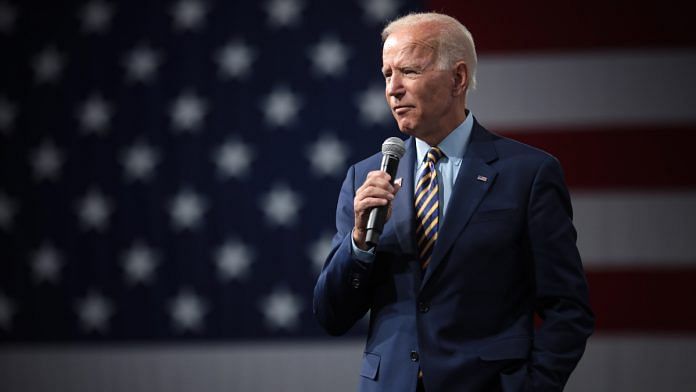Shortly after President-elect Joe Biden clinched his party’s nomination in May, a group of 50 progressive organizations sent his campaign a letter urging him to commit to a broad agenda of foreign policy reform. They wanted him to agree to such policies as re-entering the Iran nuclear deal and cutting at least $200 billion from the Pentagon budget.
Six months later, Biden has given his answer: With his choice of Antony Blinken for secretary of state and Jake Sullivan as national security adviser, as well as his expected nomination of Michele Flournoy for secretary of defense, Biden has signaled that his national security cabinet will be more centrist than the left flank of his party would like.
To be sure, Blinken, Sullivan and Flournoy will not give Saudi Arabia the green light it has come to expect from the Trump administration. Biden’s appointment of John Kerry to be his climate czar shows that an issue the Trump White House did not care about will be a priority for Biden. And Biden has committed to trying to rejoin the 2015 Iran nuclear deal if Iran comes back into compliance with it.
At the same time, all three choices come out of the moderate wing of the Democratic Party. Blinken is a longtime aide to Biden going back to his tenure as chairman of the Senate Foreign Relations Committee. He has emphasized in the last year how a Biden administration would focus on rebuilding relationships with allies that Trump has disrupted.
He has also signaled that he is more clear-eyed on Middle East policy than his party’s progressive activists. Last month, for example, Blinken told the Jewish Insider that even if the Biden administration suspends nuclear-related sanctions on Iran, “we will continue non-nuclear sanctions as a strong hedge against Iranian misbehavior in other areas.” If Biden keeps that promise, then Iran would still be under considerable financial pressure because the Trump administration has ramped up sanctions on Iran for its support of terrorism.
In other areas of the world, Biden is not quite reading from the progressive playbook. That May letter to Biden urged him to reject efforts to work to unseat the regimes of adversaries and oppose the “broad based” sanctions on Iran and Venezuela. But in a talk last year at the Hudson Institute, Sullivan wasn’t in complete agreement. When asked about Trump’s Venezuela policy, he said a military intervention was too risky, and that it was wiser to focus on non-military policy. “That means doubling down on the sanctions pieces and continuing to build the international coalition around this and particularly focus on breaking off China, Cuba and Russia from Venezuela,” Sullivan said.
Also read: Biden offers a Trump rebuke with his choices of nominees for key national security agencies
Flournoy, too, is a centrist on defense policy. She has publicly opposed significant defense cuts and advocated for rebuilding the military to meet new challenges from China and Russia. This was a key point of her testimony before the House Armed Services Committee last year, when she said her primary concern was that a miscalculation by Russia or China could lead to a major confrontation with the U.S. She advocated that the U.S. “procure and deploy all of the systems necessary” to deter both countries from any misbehavior.
Compare that to the May 11 letter from progressives, which called for greater diplomatic engagement with Russia and China. “Overhyping the threat these countries pose to the United States intensifies fear, racism, and hate domestically,” it said.
It’s still very early days to assess what a Biden foreign policy will look like. When Barack Obama became president, no one was predicting the Arab Spring and its tragic aftermath in the war in Syria. Presidents often learn what their foreign policy is by reacting to events in the world.
Nonetheless, Biden’s early signals show that, for now at least, he is charting a centrist course. And if his choices for national security positions are disappointing to his party’s progressives, they are sure to be reassuring to his country’s allies.- Bloomberg
Also read: How Biden should deal with Iran




Sometimes feel the bar is being set very low for Mr Joe Biden. After four years of Trump, the feeling seems to be that even a lamppost in the Oval Office would glow with incandescence. That is unfair to him. After half a century in public life, with a focus on foreign policy, he will impress on his own merits. For eight years, he served by the side of a calm, technocratic President, helming a long lasting economic expansion out of the chaos of the 2008 GFC. The other factor that will help President Biden would be the eagerness of most of the world – led by the EU – to work with the United States. If China and Russia display foresight, they too should make a sincere effort at a Reset, without glossing over their strategic competition.